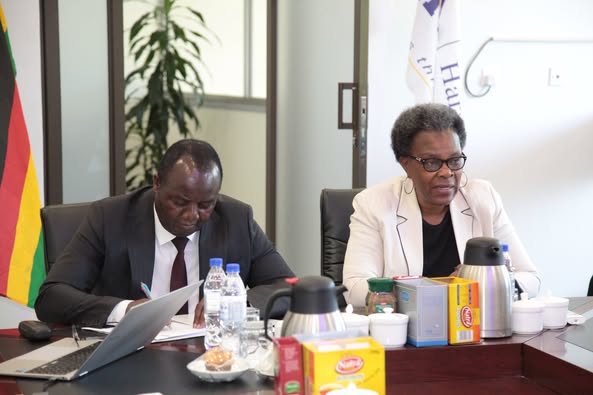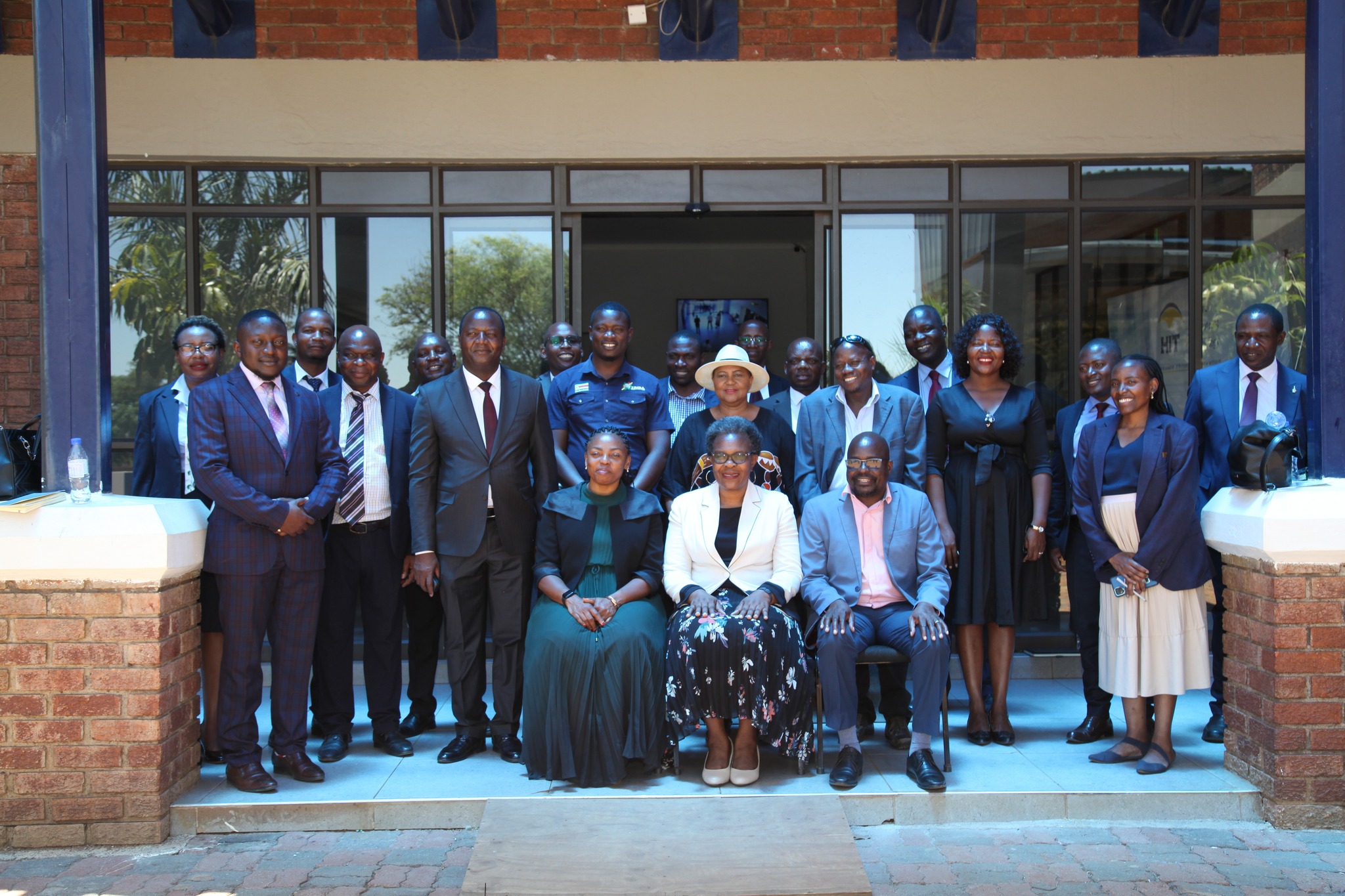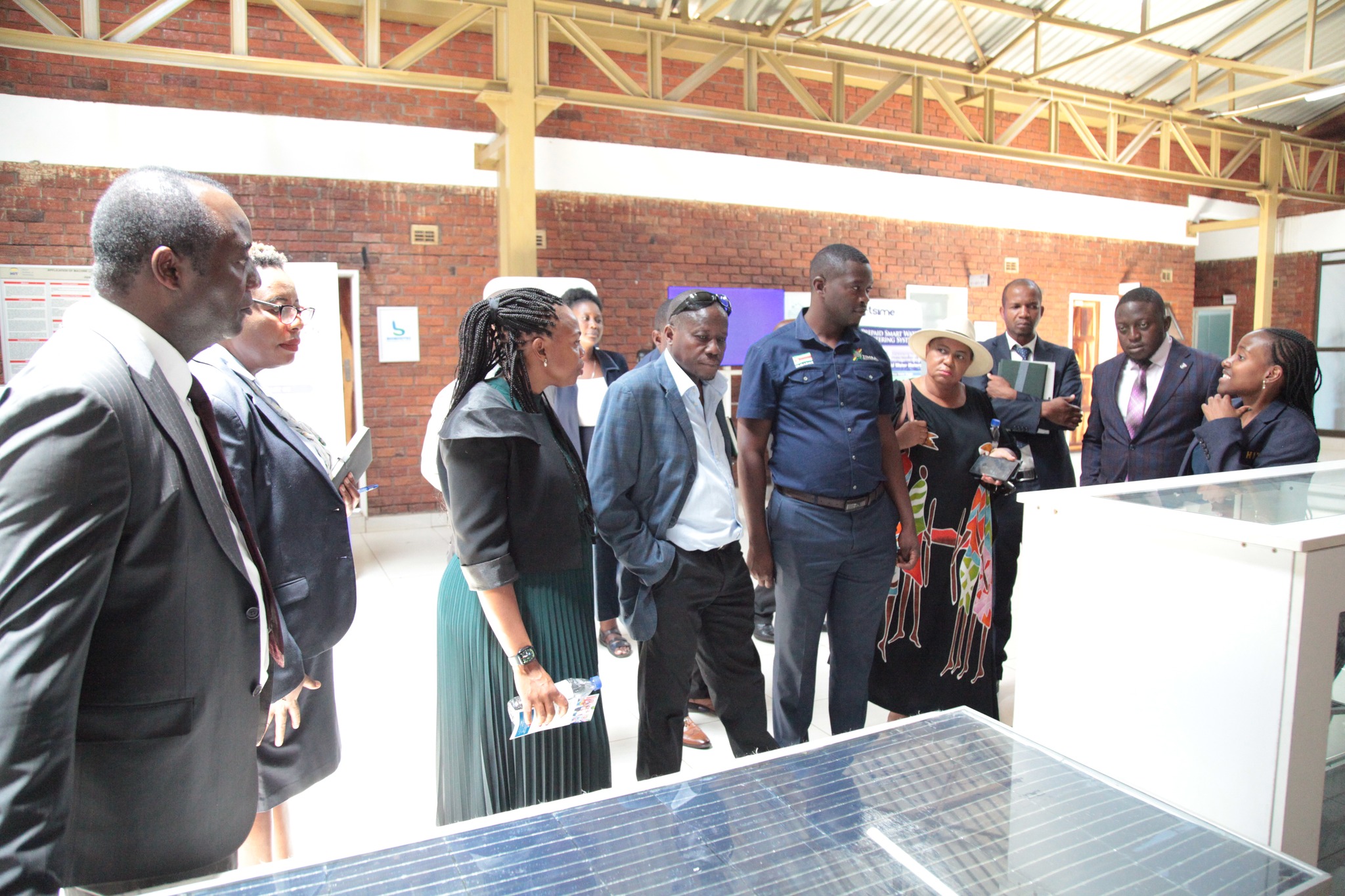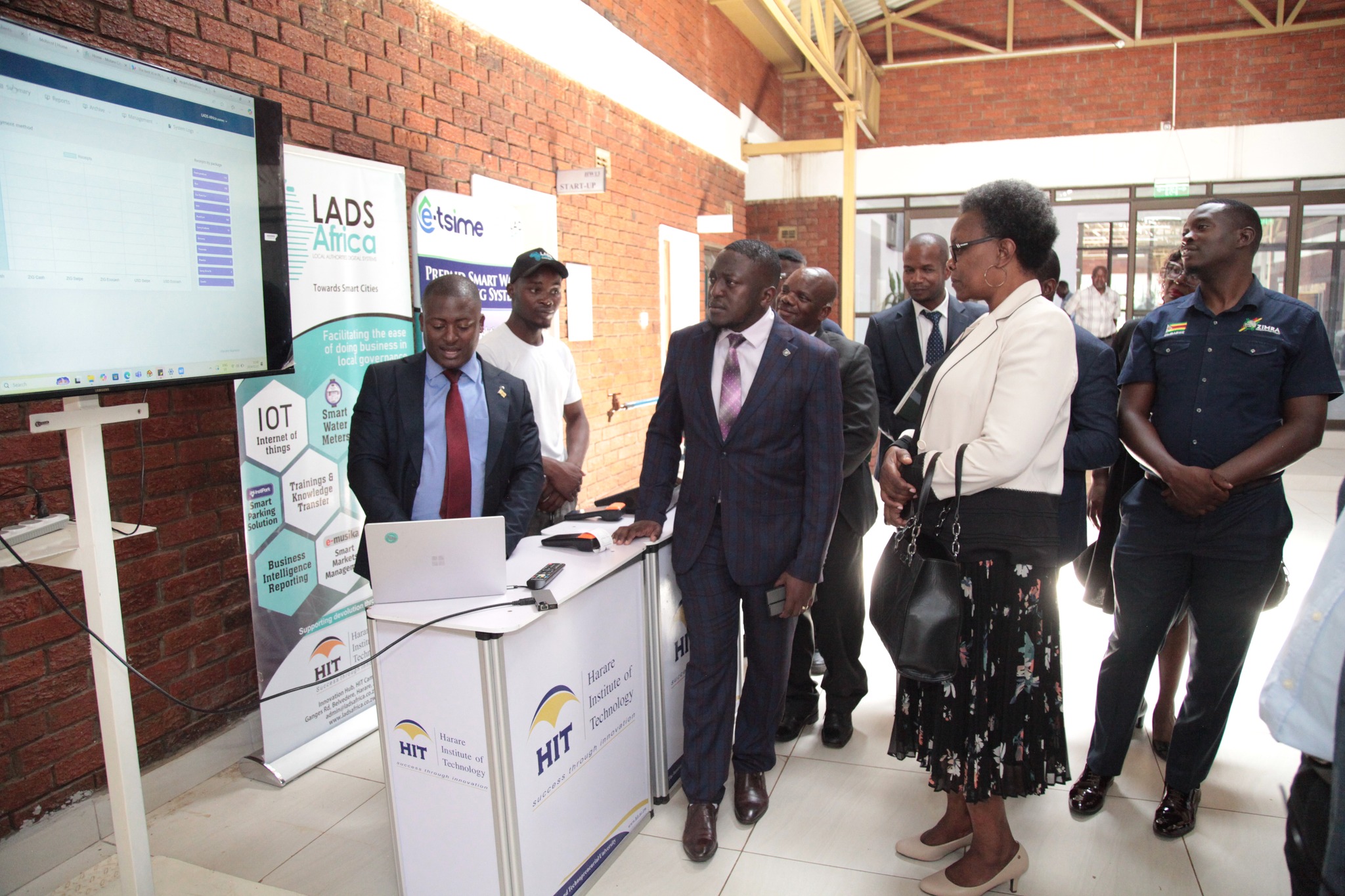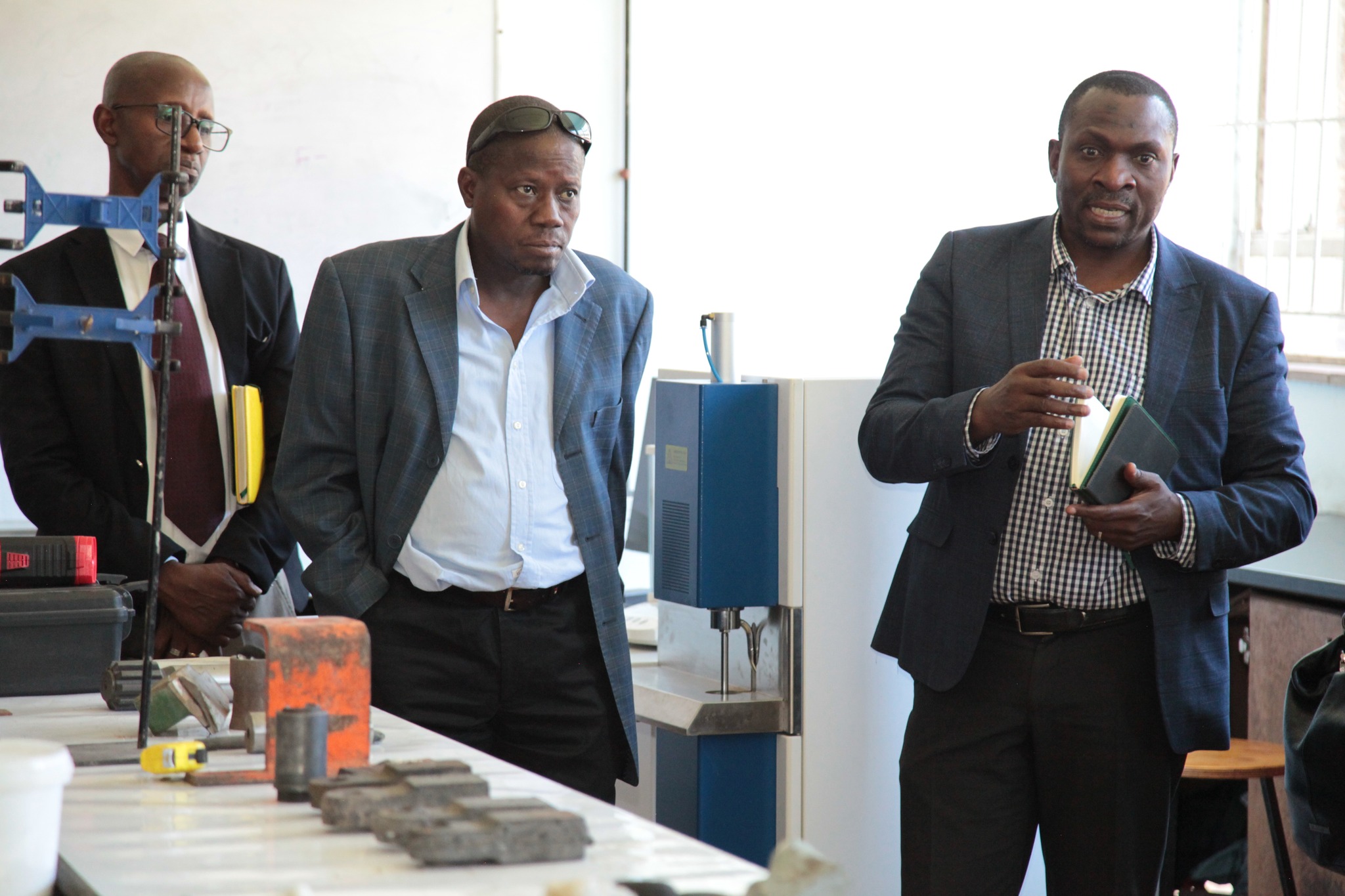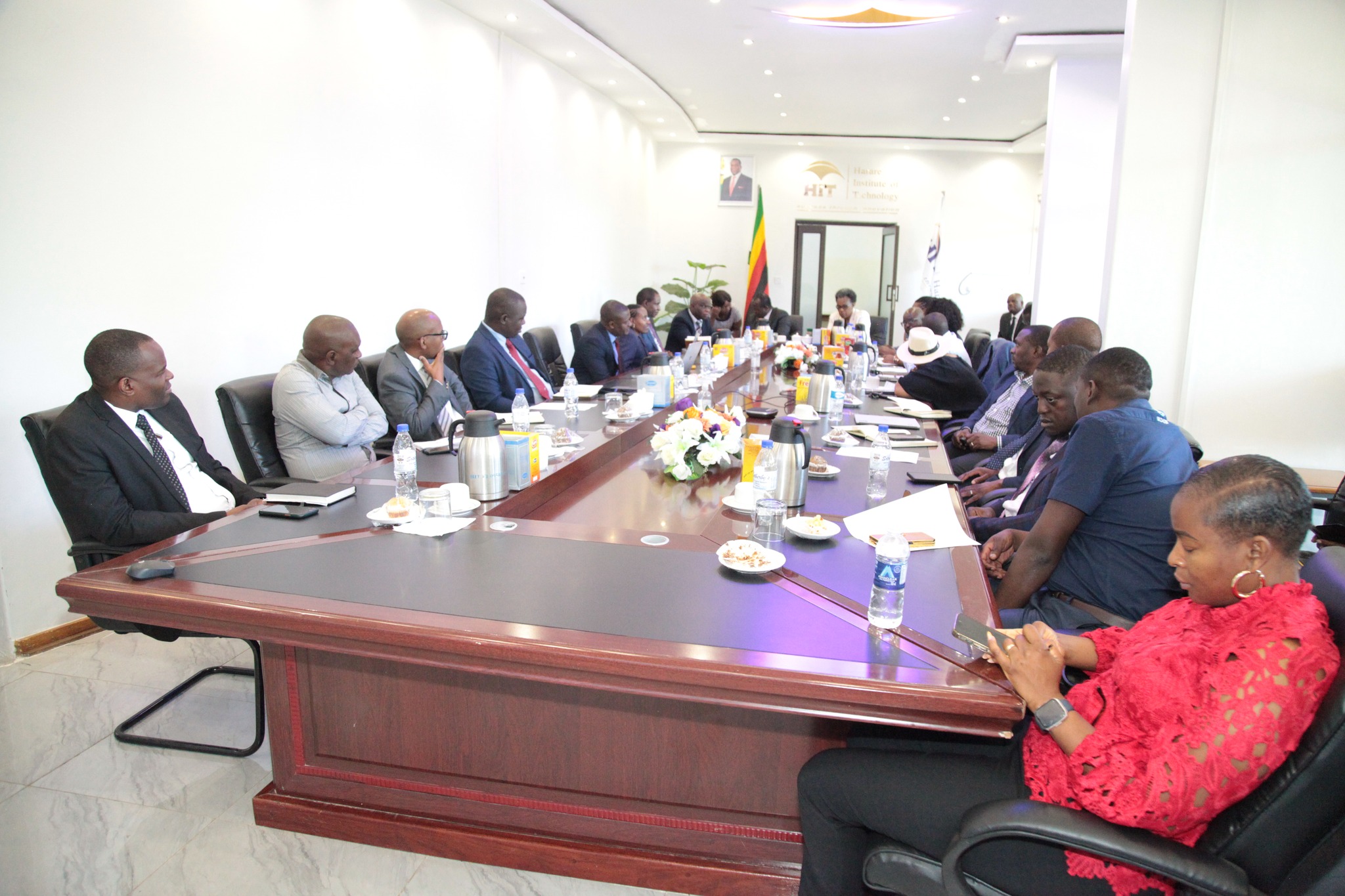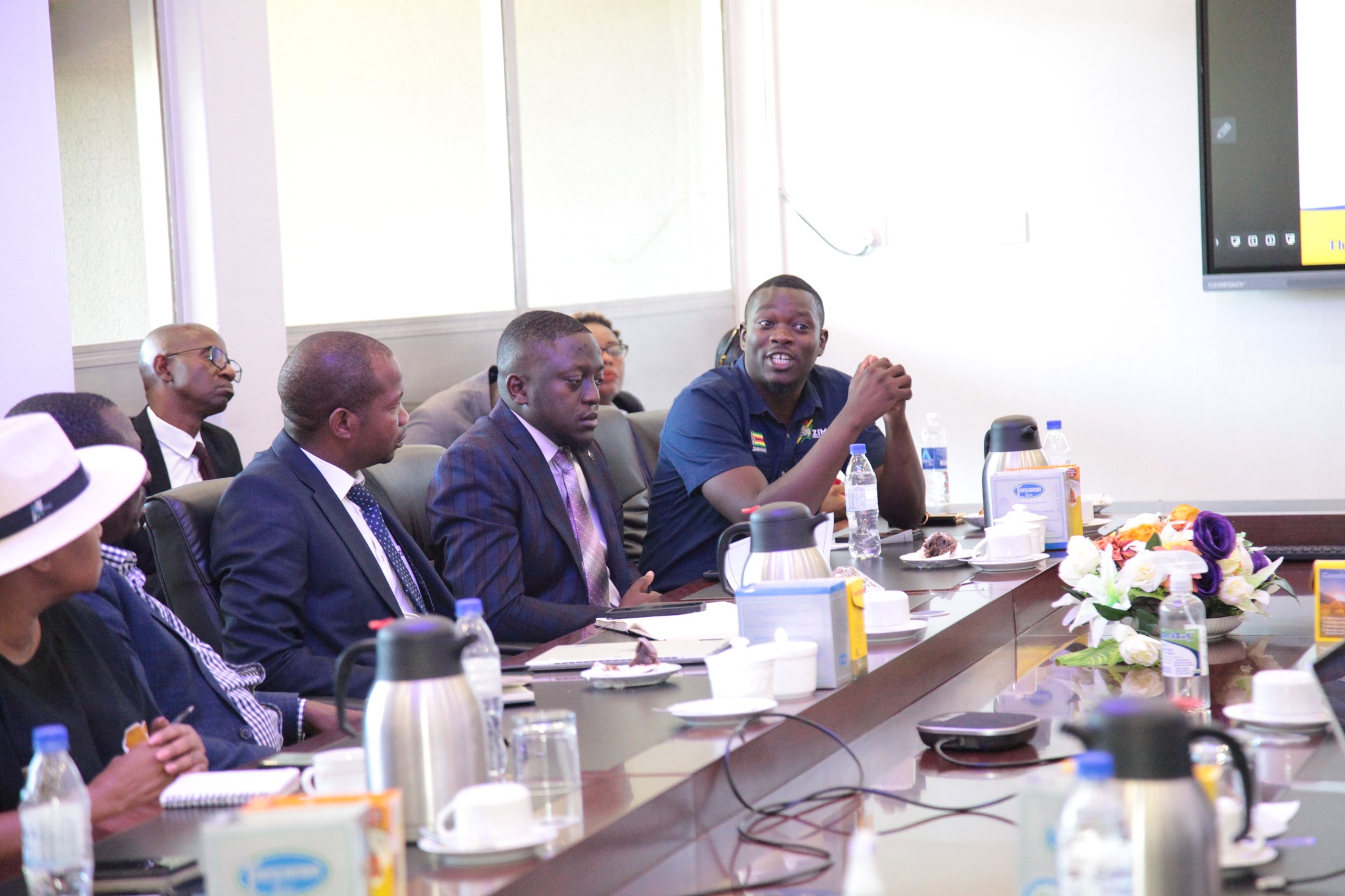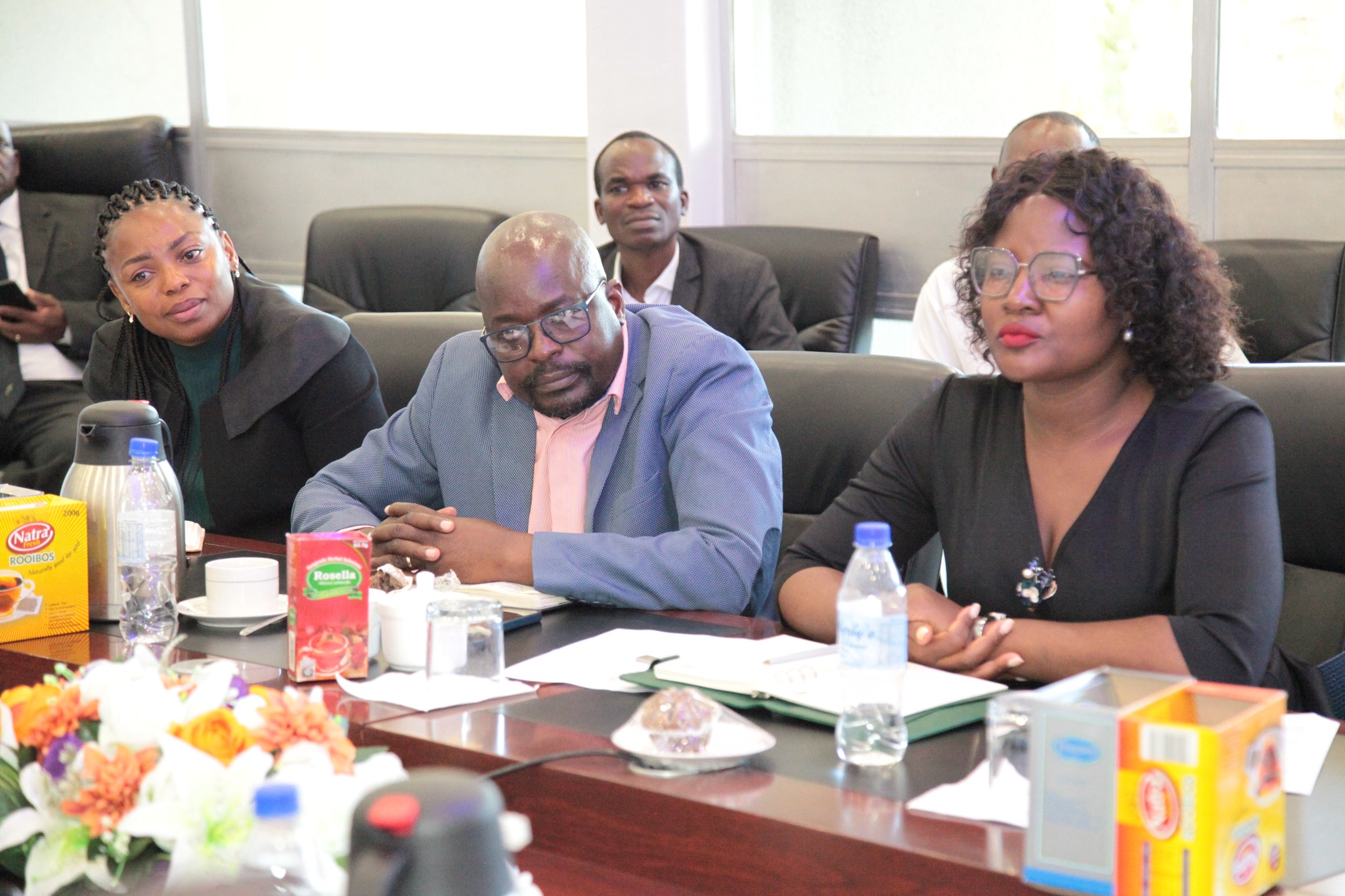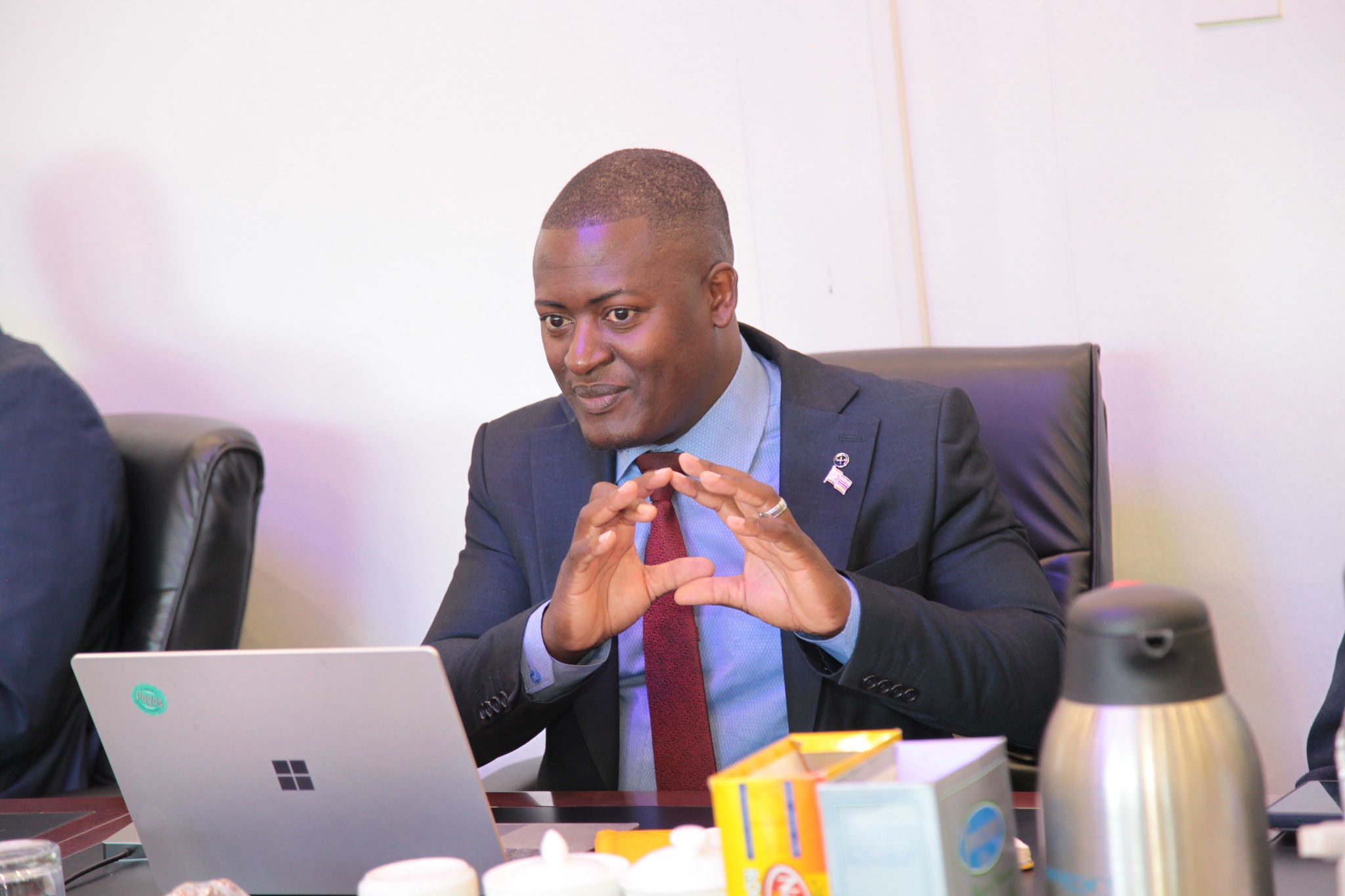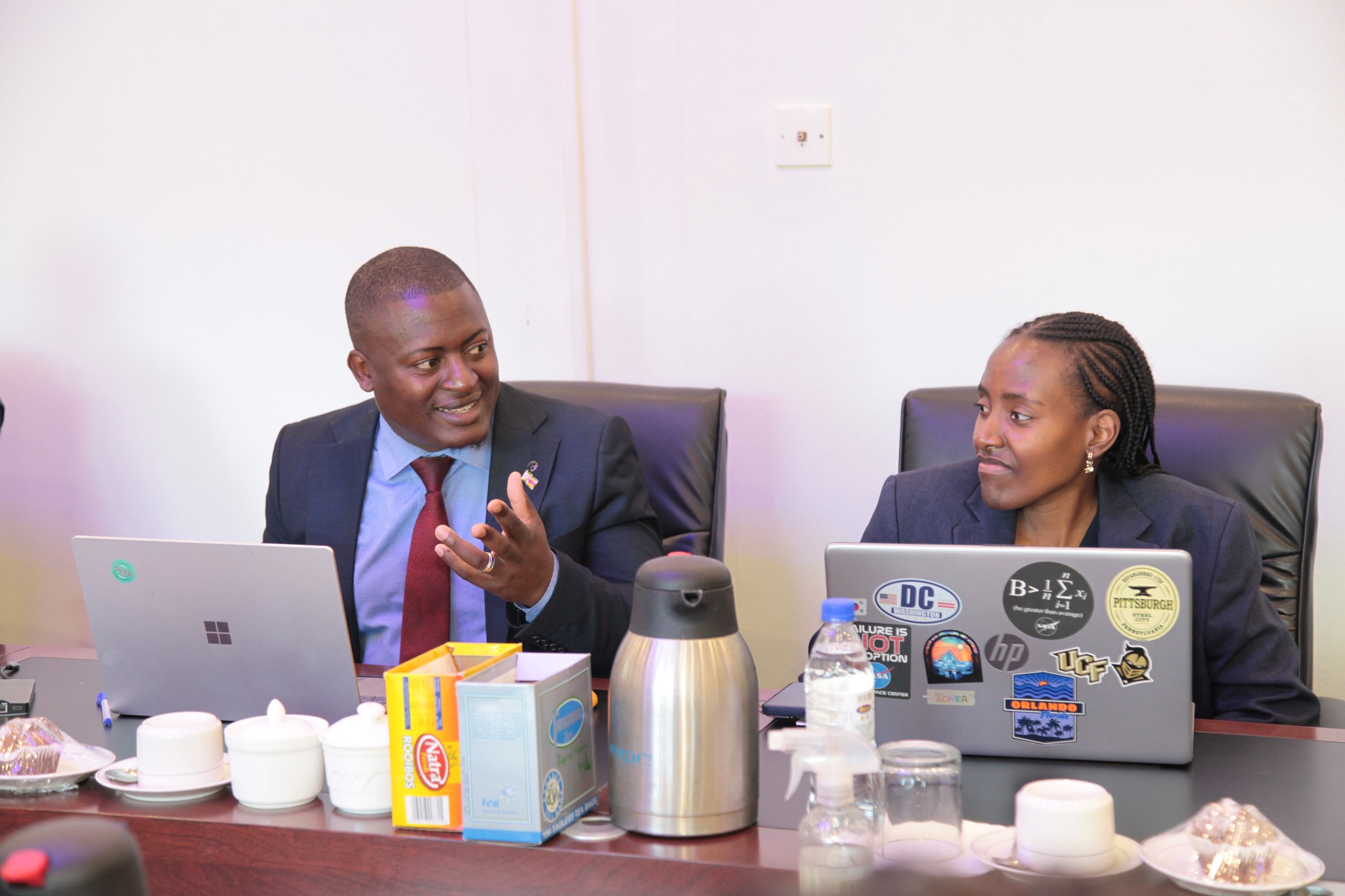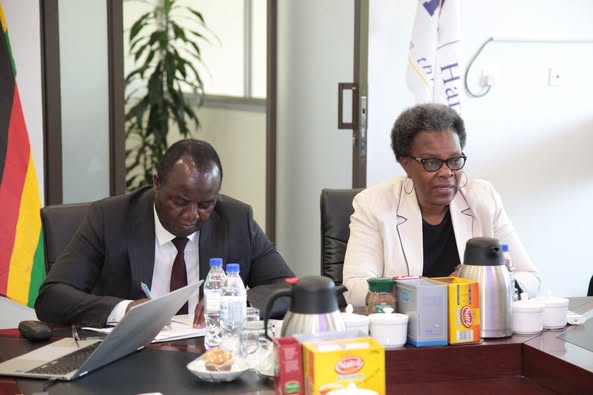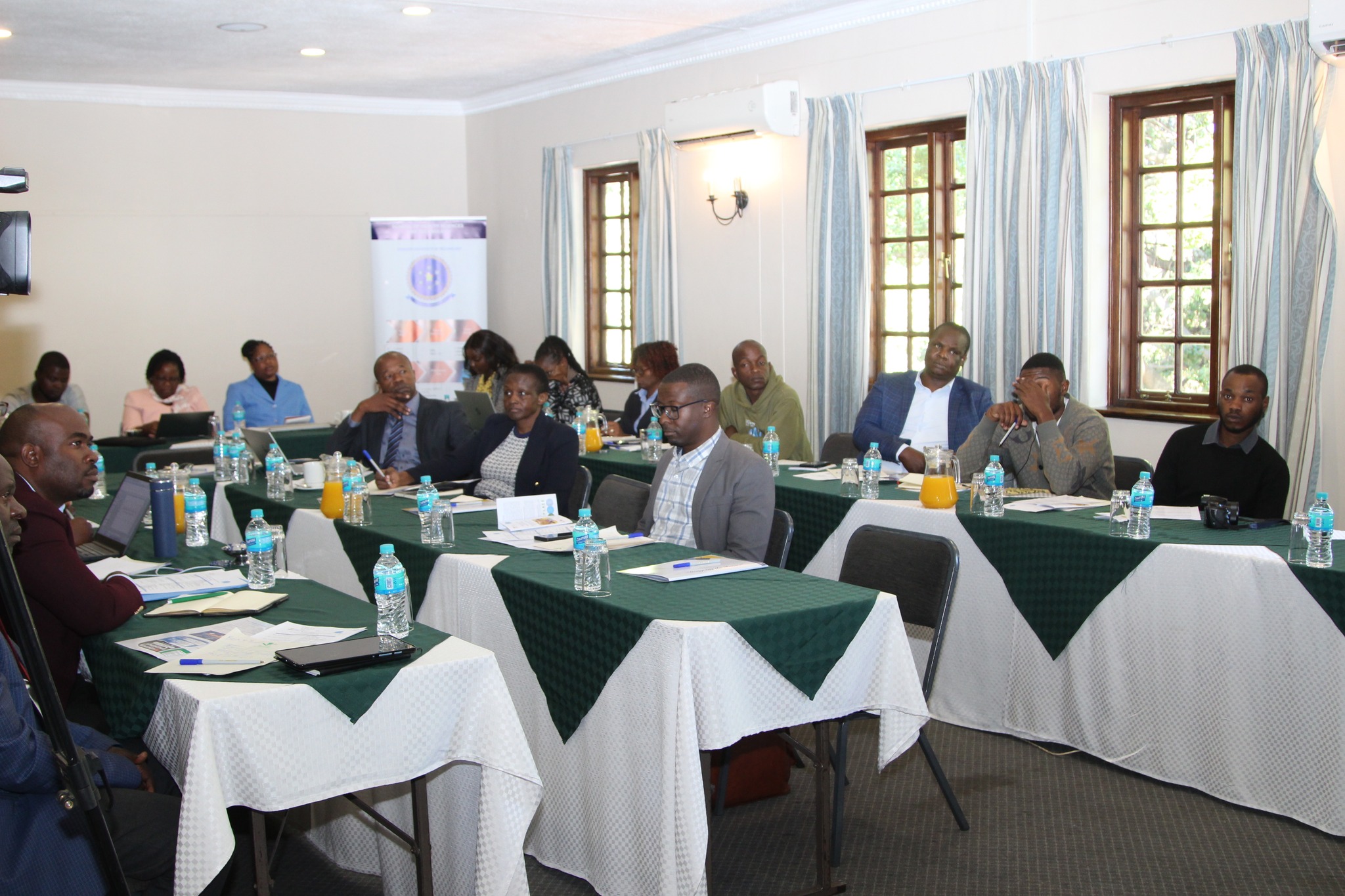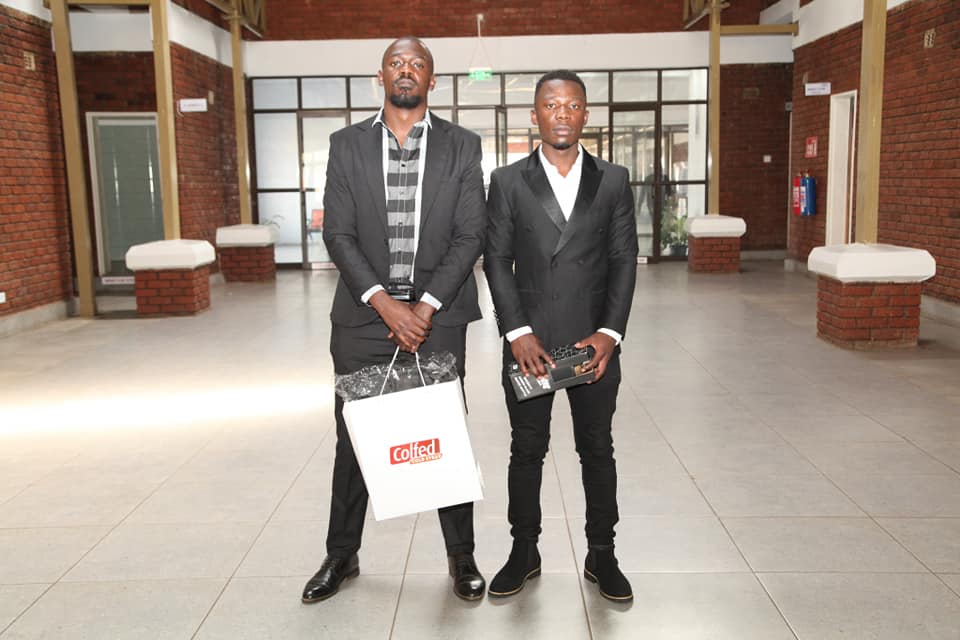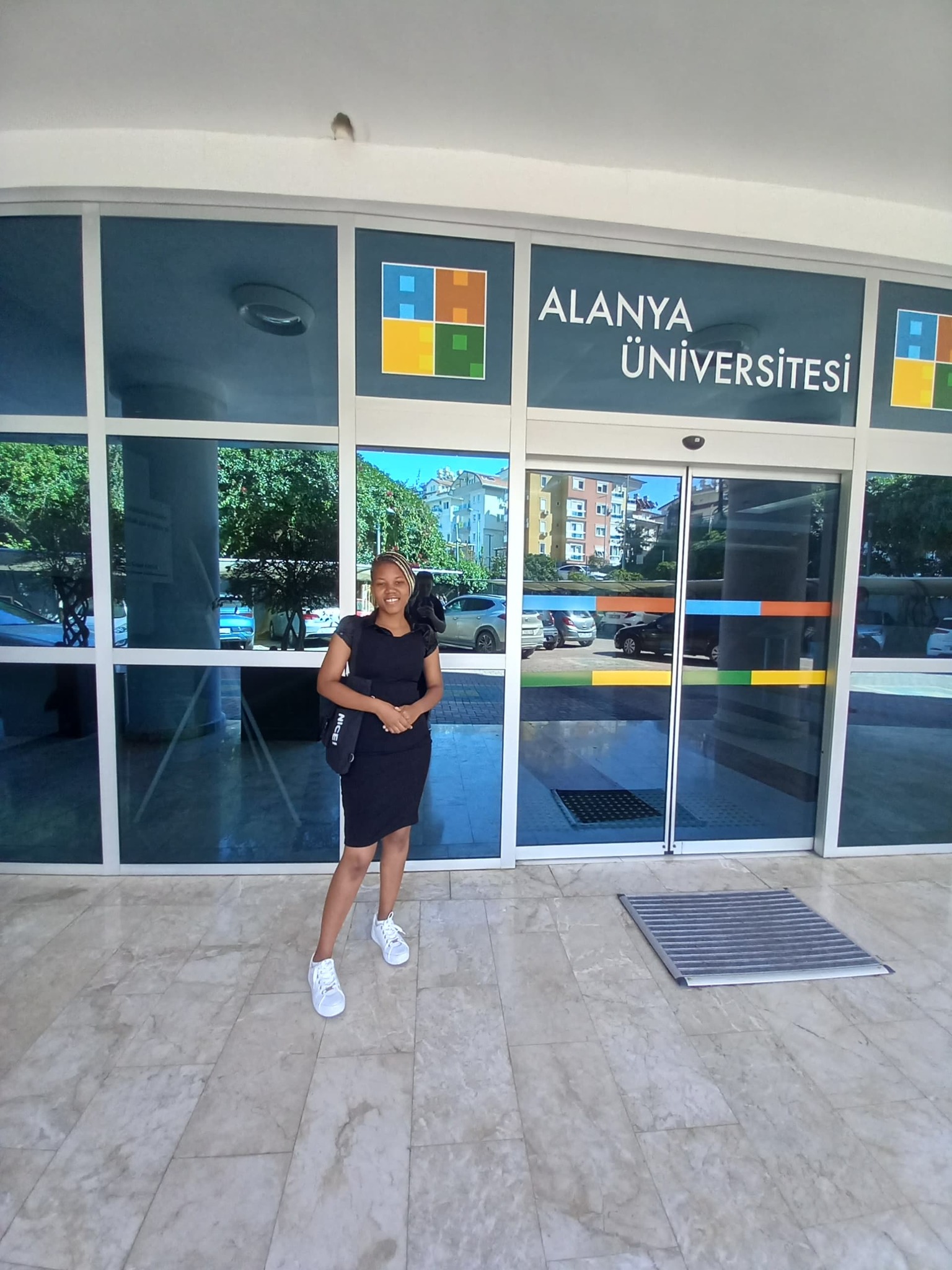A high-level delegation from the Zimbabwe Revenue Authority (ZIMRA), led by Technical Operations Committee Chairperson Ms Mutsa Remba and Commissioner General Mrs Regina Chinamasa, recently visited the Harare Institute of Technology (HIT) to spearhead a collaborative effort focused on developing local solutions that will significantly improve revenue collection mechanisms and tackle the fiscalisation of the informal sector, as mandated by the 2025 National Budget.
The delegation’s objective was clear: to explore local solutions that would dramatically enhance operational efficiency and the effectiveness of revenue collection processes.
In her opening remarks, Ms Mutsa Remba conveyed a strong sense of enthusiasm for the visit, declaring, “On behalf of ZIMRA, we are thrilled to be here. This visit is not merely anticipated; it is essential for our collective goals. We have been looking forward to this collaboration for quite some time,” she said.
She made it clear that ZIMRA’s primary mandate is to efficiently collect revenue on behalf of the government and the nation. “To fulfil our revenue collection responsibilities, we must enhance our efficiencies and effectiveness. Any inefficiency risks us losing out on vital revenue,” she asserted, emphasizing the urgent need for innovative strategies to boost revenue collection capabilities,” Mutsa Remba said.
Mrs. R. Chinamasa emphasized the authority’s unwavering commitment to innovation, aimed at optimizing revenue collection while significantly improving user experience.
Welcoming the delegation, HIT Vice Chancellor Professor Q.C. Kanhukamwe confidently outlined that HIT’s mandate is to develop, incubate, transfer, and commercialize technology for rapid national industrialization. “Many ask whether our role is solely about training students. The graduates we produce are not just students; they are vital tools for achieving our mandate. The end goal is clear: to develop, incubate, transfer, and commercialize technology to drive this nation’s industrialization forward,” he stated.
Prof. Kanhukamwe further affirmed HIT’s commitment to ensuring Zimbabwe achieves Vision 2030 and advances towards the objectives of Agenda 2063, with a strong focus on science and technology development. “We are amplifying our applied research in areas of national priority. Our contributions will extend beyond our borders to address regional, continental, and global needs. We have broadened our postgraduate offerings, introduced Master of Technology programs, and initiated doctoral programs. Furthermore, we are at the forefront of patent registrations and the commercialization of innovative products,” he elaborated.
The discussions centred on how collaboration with the university and its start-ups can lead to sustainable solutions strategically designed to tap into the often-overlooked informal sector. “We must prioritize our efforts to leverage every potential revenue stream,” asserted Ms. Mutsa Remba.
Both parties shared valuable insights into local project management strategies and stressed the necessity of integrating effective technology into revenue collection systems. They recognized the critical importance of understanding the geographical distribution of informal businesses and outlined actionable plans to collaborate with local governments and authorities to create comprehensive mapping solutions for better oversight and management of the informal sector.
Moreover, the discussions included identifying technological solutions that would streamline processes, mitigate revenue leaks, and enhance tax compliance among informal traders. The collaboration is set to support the government’s ambitious goals of formalizing the informal sector while bolstering economic growth.
In closing, Ms Chinamasa highlighted the crucial nature of ongoing idea exchanges and collaborative efforts for the future of the nation’s revenue collection systems. “By harnessing local knowledge and innovation, we are confident we can develop practical solutions to the challenges at hand,” stated Ms Chinamasa unequivocally.
The meeting wrapped up on a determined note, with participants eager to witness the tangible outcomes of this collaboration, which they believe will drive sustainable growth and enhance fiscal responsibility across the nation. As Zimbabwe endeavours to strengthen its economic recovery, initiatives like these will play a pivotal role in shaping the country’s fiscal landscape.
The ZIMRA delegation also toured some of the Institute’s laboratories, workshops, the Innovation Hub and some start-ups.


